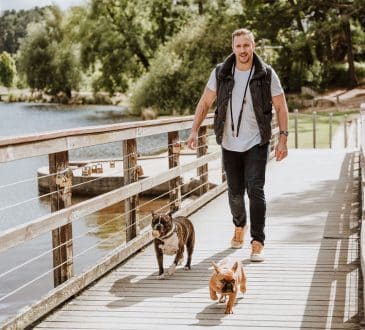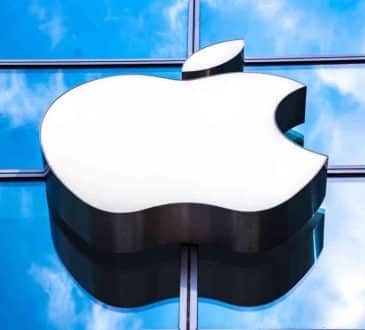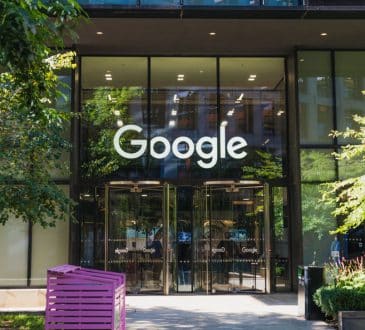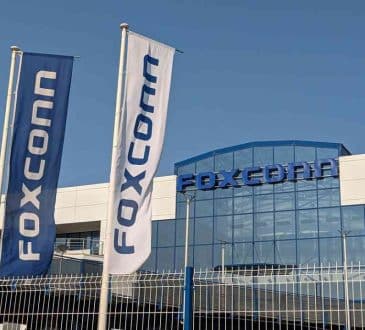Forget RFPs. Here’s How to Find the Right Creative Partner

The pace of change in business will never be as slow as it is today. It’s become increasingly difficult for organizations to keep up: The last thing you need is the added task of keeping agencies up to speed.
Yet when it comes to brand experience design, that’s exactly what many businesses are still attempting to do when they adhere to the inefficient, ineffective request for proposal process.
RFPs keep an agency in a reactive state, but a better option is to form a request for partnership, making an agency an extension of your team. An agency partnership that aims to deeply understand your business and key priorities on an ongoing basis, across multiple stakeholder engagements, can join you in developing solutions — even writing the brief for you!
An Inefficient and Outdated System
Successful partnerships are built on chemistry and collaboration, yet the RFP process rarely helps organizations determine “fit.” Because neither party has the opportunity to get to know who they are working with, there’s no way to envision what the partnership will be like. Eighty-six percent of employees and executives cite a lack of collaboration or ineffective communication for failures in the workplace — and both are exacerbated when two organizations aren’t suited to each other.
Then, too, RFPs rarely include the quality or depth of information that is critical for prospective agency partners to provide you with their best ideas. This is largely because RFPs are written to highlight the solution and don’t usually articulate the problem that prompted the need for an agency partner. To compound the issue, the executives who tend to have the most influence and input on what success looks like are rarely available to the proposing agency throughout the RFP process.
Ultimately, all the effort drafting, distributing, and executing RFPs is wasted because agencies can’t properly demonstrate an understanding of your audience, business goals, or creative solutions. Additionally, the structure of RFPs is usually too rigid to allow for creative responses, undermining the purpose of sourcing a creative agency partner.
Imagine if agencies could take the time and money spent on the RFP process and dedicate it to discovery, definition, and creative ideation specifically tailored to your business challenges.
Finding the Perfect Fit
Developing a marketing strategy that differentiates your brand from the competition requires a deep understanding of what makes you different and then faithful, consistent execution of your unique brand experience. This understanding builds over time. And when an agency knows you’re in it for the long haul, it’s more likely to dedicate higher-level, consistent talent and resources to your account — often with multiyear contract discounts.
When looking for an event design partner, the first step is to decide which type of agency you need (specialized or integrated). There are four core characteristics to evaluate:
- Offering
If you already have a strategy set and need to execute in only a single area, a boutique agency can often deliver just what you need. When you have a specific need — live social media support for an event on show days only, for example — an agency that specializes in social media can likely provide the right balance of experience and cost.
However, if you are looking to plan and execute an integrated campaign across multiple channels such as marketing via experiential and traditional media, it’s smoother and more efficient to partner with a single agency. You’d need to bring only a single agency up to speed, and when you work with the same firm for strategy and planning, creative and design, production and implementation, and account service, your customers will have a more cohesive and holistic experience. - Breadth and Depth
Although not always the case, a specialized agency will usually be smaller than an integrated agency, functioning with fewer people and locations. If your needs are not geographically diverse, a boutique agency could make a cozy partner for you.
But if you are a larger organization or planning a big event or campaign, your agency needs to have the capacity to scale with you. An agency partner that helps shape, create, and manage the execution of these programs will also have the ability to think about how your content strategy ties together and where to find efficiencies, successes, and opportunities across your campaign and event portfolio. - Service Model
Because their work is often project-based, small, specialized agencies tend to spread their resources across multiple accounts. You may not always talk to the account executive, designer, writer, or producer you know and love.
Conversely, integrated agencies typically have service models that enable them to dedicate a consistent team to a client or project. This relationship creates a deeper and better understanding of their client, the brand, and their audience. So when different marketing programs present different needs, your agency partner already has the insight and experience to tackle them easily and efficiently. The time to onboard a project is reduced and solutions are addressed more holistically so that you can realize long-term savings. - Cultural Fit
To trust an agency partner to be an extension of your team, start by aligning your cultural values and needs. Meet the account managers you will actually work with, and make sure you like them. Even with one-off projects, you’re likely to need similar services again. Work to build a relationship, not just manage transactions.
If you have strategic and creative capabilities in-house, you may simply need someone to follow directions and execute flawlessly. This is especially common in highly regulated industries such as healthcare or finance where those rules inhibit the ability to push boundaries. In these situations, you need a partner who understands your way of working and your unique risk thresholds.
On the other hand, an agency’s ideas and creative can become stale when the paradigm doesn’t encourage taking risks, even when it’s appropriate. When there are mutual trust and cultural alignment, creatives are more willing to challenge themselves to do new and exciting things.
Once you’ve identified what kind of agency partner you need, you can structure the request for partnership process to gain a deeper understanding of what the partnership could look like. For example, instead of asking for a pitch, dedicate a day to bringing in all prospective agency partners and have them each participate in a creative ideation exercise, solving for one of your key challenges. That will give you an opportunity to see how they collaborate with each other — and with your company.
Establishing and fostering strong partnerships with agencies ultimately reduces agency onboarding time, strengthens recommendations, and drives time and budget efficiencies. Stepping outside the RFP box can help you find partners you actually like, ones who uplift you and enhance your success. When this harmony is achieved, the relationship becomes a true partnership instead of a transaction.
Have you read?
The World’s Safest Cities Ranking, 2019.
The Best Hotels In New Delhi For Business Travelers, 2019.
Best CEOs In The World 2019: Most Influential Chief Executives.
Countries With The Best Quality of Life, 2019.
World’s Best Countries To Invest In Or Do Business For 2019.
Add CEOWORLD magazine to your Google News feed.
Follow CEOWORLD magazine headlines on: Google News, LinkedIn, Twitter, and Facebook.
This report/news/ranking/statistics has been prepared only for general guidance on matters of interest and does not constitute professional advice. You should not act upon the information contained in this publication without obtaining specific professional advice. No representation or warranty (express or implied) is given as to the accuracy or completeness of the information contained in this publication, and, to the extent permitted by law, CEOWORLD magazine does not accept or assume any liability, responsibility or duty of care for any consequences of you or anyone else acting, or refraining to act, in reliance on the information contained in this publication or for any decision based on it.
Copyright 2024 The CEOWORLD magazine. All rights reserved. This material (and any extract from it) must not be copied, redistributed or placed on any website, without CEOWORLD magazine' prior written consent. For media queries, please contact: info@ceoworld.biz
SUBSCRIBE NEWSLETTER








